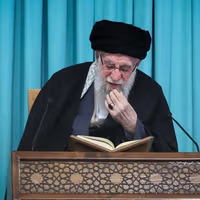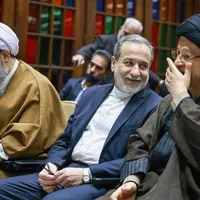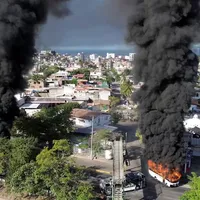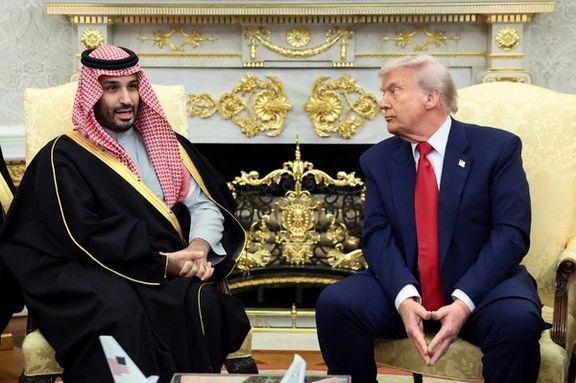"It’s all about ambiguity. Nuclear hedging is all about the other side not knowing exactly what we have or exactly what our intentions are," Fitzpatrick, an associate fellow with The International Institute for Strategic Studies (IISS), told Eye for Iran.
Fitzpatrick, the author of “The Iranian Nuclear Crisis" and former US Deputy Assistant Secretary for Non-Proliferation, spoke after Iran this week rejected a new International Atomic Energy Agency resolution demanding access to its bombed nuclear sites.
US strikes capped off a surprise military campaign against Iran in June and targeted the Natanz, Esfahan and Fordow nuclear sites. Iranian authorities have barred international inspection of the stricken facilities in the months since.
A leaked report from the UN nuclear watchdog says it has lost continuity of knowledge on Iran’s 60 percent enriched uranium stockpile, which had grown to roughly 400 kilograms before the attacks.
Rafael Grossi, head of the agency warned this week that monitoring gaps have become a serious proliferation risk. Iran’s ambassador to the IAEA, Reza Najafi, responded by saying the resolution voided an earlier deal with the nuclear body.
What has actually changed?
Fitzpatrick says none of these developments signal a shift in Iran’s doctrine and that ambiguity may be a deliberate part of Iran's strategy.
“I don’t see any evidence that they’ve given up the desire to have a nuclear option for the future.” He argued Iran remains committed to so-called nuclear hedging, a strategy designed to maintain the capability to produce a weapon quickly while avoiding the political cost of crossing the threshold.
What has changed is Iran’s capacity, as Iran's foreign minister said this week that no enrichment had occurred since the attacks. “We’re not enriching for now because we can’t,” Abbas Araghchi said this week.
Araghchi told The Economist in an interview published on Thursday that Tehran is open to talks with the United States but not on Washington’s terms. “Zero enrichment is impossible ... zero (nuclear) weapons is possible.”
Fitzpatrick believes Iran is now stuck between possible inclination to revive its nuclear capability and desire to avoid renewed attack.
If Tehran tries to recover the buried canisters of 60 percent material or construction accelerates at the sensitive sites, he says Israel will likely strike again. The current drift, Fitzpatrick added, may be a sign of Iran making a bid for time, or "temporizing."
Despite the damage, Fitzpatrick believes the strikes may have strengthened the internal argument for a bomb.
“It probably steels a determination to have an option.”
Regional dynamics add further risk
In Saudi Arabia’s Crown Prince Mohammed bin Salman was in Washington this week he inked a Civil Nuclear Cooperation Agreement with Washington, which “builds the legal foundation for a decades-long, multi-billion-dollar nuclear energy partnership."
It positions the United States as Saudi Arabia’s “civil nuclear cooperation partner of choice," according to a release by the White House.
White House officials said the partnership would not entail Saudi enrichment, though it adds another nuclear element to the tense Persian Gulf region.
“If Saudi Arabia has an enrichment capability, then not just Iran, but other states in the region will say well we should have it too.”
You can watch the full episode of Eye for Iran on YouTube or listen on any podcast platform of your choosing.










